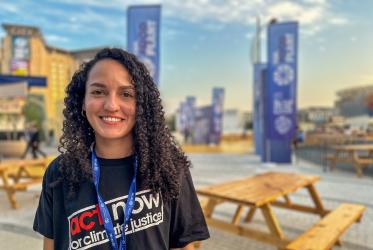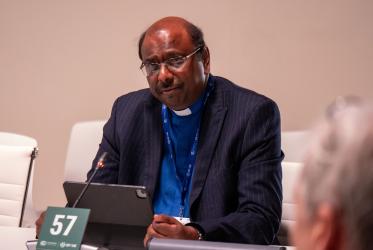Displaying 1 - 20 of 176
17 April 2024
Voice of churches vital during UN women’s rights talks
28 March 2024
Compendium of Promising Practices of African Faith Community Interventions against Paediatric and Adolescent HIV
Executive Summary
23 March 2024
What can churches do to prevent modern slavery?
22 February 2024
Ellyanne Chlystun-Githae Wanjiku to COP28: “listen more to children”
13 December 2023
At COP28, WCC general secretary hopes for “less talk and more walk”
01 December 2023
A Guide for Churches on the Prevention of Obstetric Fistula
26 October 2023
Recommended Practices to Combat HIV-Related Stigma
A Guidebook for Local Faith Communities
05 October 2023
















